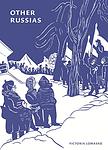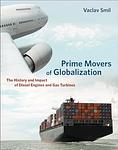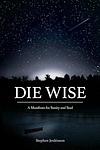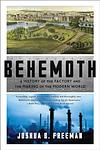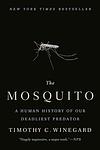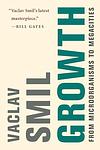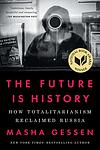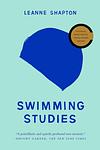The Greatest Russian, Canadian "Nonfiction" Books Since 2010
Click to learn how this list is calculated.
This list represents a comprehensive and trusted collection of the greatest books. Developed through a specialized algorithm, it brings together 285 'best of' book lists to form a definitive guide to the world's most acclaimed books. For those interested in how these books are chosen, additional details can be found on the rankings page.
Genres
Countries
Date Range
Reading Statistics
Click the button below to see how many of these books you've read!
Download
If you're interested in downloading this list as a CSV file for use in a spreadsheet application, you can easily do so by clicking the button below. Please note that to ensure a manageable file size and faster download, the CSV will include details for only the first 500 books.
Download-
1. 12 Rules For Life by Jordan B. Peterson
"12 Rules for Life" by Jordan B. Peterson is a self-help book that offers practical advice on how to navigate the complexities of life and find meaning and purpose. Drawing from a wide range of disciplines, including psychology, philosophy, and biology, the author presents twelve rules that encourage readers to take responsibility for their actions, confront chaos and suffering, and strive for personal growth and fulfillment. With a blend of personal anecdotes, scientific research, and philosophical insights, this book aims to provide readers with practical tools to improve their lives and find harmony in an increasingly chaotic world.
-
2. The Diary Of A Gulag Prison Guard 1935 6 by Ivan Chistyakov
"The Diary Of A Gulag Prison Guard 1935-6" is a chilling and harrowing memoir that provides a firsthand account of the atrocities and cruelty witnessed by Ivan Chistyakov during his time as a guard in a Soviet Gulag prison. Through his detailed entries, Chistyakov reveals the dehumanizing conditions, brutal punishments, and constant fear that both prisoners and guards endured within the oppressive Soviet regime. This haunting narrative serves as a stark reminder of the dark realities of the Gulag system and the lasting impact it had on the lives of countless individuals.
-
3. Other Russias by Victoria Lomasko
"Other Russias" is a powerful and thought-provoking graphic novel that offers an intimate and unfiltered glimpse into the lives of marginalized individuals and communities in contemporary Russia. Through her stunning illustrations and poignant interviews, Victoria Lomasko sheds light on the struggles, hopes, and resilience of diverse groups such as LGBTQ+ activists, migrant workers, political dissidents, and the forgotten voices of rural communities. This eye-opening book challenges stereotypes and provides a humanizing portrayal of those who are often overlooked or silenced in Russian society.
-
4. Why America Is Not A New Rome by Vaclav Smil
This book presents a detailed comparison between the United States and ancient Rome, debunking the popular notion that America is following the same trajectory as the Roman Empire towards decline and fall. The author meticulously examines various dimensions including military power, political systems, social structures, and economic dynamics to highlight the fundamental differences between the two entities. Through a rigorous analysis, it is argued that simplistic analogies between Rome and the United States overlook significant dissimilarities, particularly in terms of resilience, adaptability, and global influence, ultimately making the case that America's path is distinct from that of ancient Rome.
-
5. Prime Movers Of Globalization by Vaclav Smil
This book provides a comprehensive analysis of the technological innovations and energy systems that have been pivotal in driving globalization from the mid-19th century to the present day. It focuses on the development and impact of diesel engines, gas turbines, and the containerization of cargo, illustrating how these innovations have significantly increased the efficiency, speed, and scale of global trade and transportation. The narrative underscores the critical role of energy transitions in facilitating economic growth and interconnectivity across continents, while also considering the environmental and geopolitical implications of our reliance on fossil fuels and the urgent need for sustainable alternatives. Through a detailed examination of technological advancements, the work offers insights into the complex dynamics that have shaped the modern globalized world.
-
6. Die Wise by Stephen Jenkinson
The book in question is a profound meditation on the necessity of acknowledging and accepting death as an intrinsic part of life. It challenges the modern denial of death and the prevalent notion of "dying well." Through a blend of storytelling, wisdom, and cultural critique, the author, who has worked extensively in palliative care, argues for a radical shift in how we perceive and approach the end of life. He advocates for a deep responsibility to dying people and a reimagined relationship with death that involves wisdom, community, and a recognition of its place in the natural order of things. The book serves as a call to awaken to the ways in which our cultural practices often leave us ill-prepared for the inevitable journey of dying, urging readers to live and die with a sense of true understanding and purpose.
-
7. Making The Modern World by Vaclav Smil
This book provides a comprehensive exploration of the materials that have shaped human history, from the Stone Age to the present. It delves into how the extraction and use of various materials, including metals, fossil fuels, and biomass, have been pivotal in the development of civilizations and the modern industrial world. The author examines the environmental and societal impacts of material consumption, emphasizing the sustainability challenges posed by our ongoing reliance on these resources. Through a detailed analysis of material flows and innovations, the book offers insights into the complexities of achieving a more sustainable future and the critical role of efficient material use in making the modern world.
-
8. Dark Matters by Simone Browne
"Dark Matters" is a critical examination of how race and surveillance have intersected throughout history, particularly within the context of blackness. The book delves into the ways in which surveillance practices, both historical and contemporary, are rooted in racial discrimination and how these practices have served to enforce boundaries of social control. By exploring a range of topics, from the branding of slaves in the 18th century to modern-day policing and biometric technologies, the book challenges readers to consider the pervasive nature of surveillance and its disproportionate impact on black communities. Through this lens, the author reveals the deep-seated connections between visibility, race, and the monitoring of bodies in public and private spaces, urging a reevaluation of the role of surveillance in perpetuating systemic racial inequalities.
-
9. War by Margaret MacMillan
"War" by Margaret MacMillan is a comprehensive analysis of the causes, conduct, and consequences of war throughout history. Drawing on a vast range of sources, including personal accounts, political documents, and military strategy, MacMillan explores the human motivations behind war and the complex web of political, economic, and social factors that drive nations to conflict. She examines the impact of war on individuals and societies, from the trauma of soldiers on the front lines to the far-reaching political and economic consequences of global conflicts. Ultimately, MacMillan argues that war is a deeply human phenomenon, shaped by the complex interplay of individual and collective desires, fears, and ambitions.
-
10. The Routledge Handbook Of Panpsychism by William Seager
The book serves as a comprehensive guide to panpsychism, the philosophical view that consciousness is a fundamental and ubiquitous aspect of the physical world. It brings together contributions from leading scholars to explore various aspects of this theory, including its historical roots, its philosophical implications, and its compatibility with contemporary science. The handbook examines arguments for and against panpsychism, discusses its potential solutions to the mind-body problem, and considers its implications for our understanding of the nature of consciousness and the physical universe. This collection not only provides a detailed overview of current debates but also charts potential future directions for research in this area.
-
11. The Mosquito by Timothy C. Winegard
This book presents a compelling examination of how the mosquito has been a pivotal force in shaping human history. Through meticulous research, it uncovers the profound impact these tiny insects have had on wars, colonization, and the spread of diseases across continents. The narrative delves into the biological and ecological aspects of the mosquito, revealing how its role as a carrier of deadly pathogens like malaria, yellow fever, and dengue has influenced the outcomes of battles, the fates of empires, and the lives of billions of people. By weaving together historical events with scientific insights, the book offers a unique perspective on the mosquito's place in the world and its indelible influence on human civilization.
-
12. Growth by Vaclav Smil
This book provides a comprehensive exploration of growth in various domains, including biological, societal, economic, and technological realms. The author meticulously examines the principles and patterns of growth, from the microscale of organisms to the macroscale of human civilization. Through a detailed analysis, the narrative delves into the implications of unchecked growth, particularly focusing on the sustainability challenges it poses to the environment and future generations. The work is a thought-provoking synthesis that encourages readers to reconsider the conventional pursuit of growth, advocating for a more measured and sustainable approach to development across all facets of life.
-
13. How The World Really Works by Vaclav Smil
This book provides a comprehensive exploration into the fundamental principles that underpin the modern world, focusing on the scientific and technical underpinnings of daily life and global systems. It delves into critical areas such as energy, food production, material goods, and the mechanisms of economic growth, offering insights into how these elements interact to shape our society and environment. Through a blend of detailed analysis and accessible explanations, the author aims to demystify complex processes and encourage a deeper understanding of the realities and challenges facing the world today, emphasizing the importance of informed decision-making in addressing global issues.
-
14. The Future Is History: How Totalitarianism Reclaimed Russia by Masha Gessen
This book provides a deeply researched examination of the resurgence of totalitarianism in Russia, focusing on the lives of four individuals born at what promised to be the dawn of democracy. The book explores how, after the fall of the Soviet Union, instead of moving towards a democratic society, Russia has seen a rise in a new form of totalitarianism under its current leadership. It delves into the psychological shift in the Russian populace, the government's use of homophobia as a method of control, and how the internet and social media have been weaponized for political purposes.
-
15. Swimming Studies by Leanne Shapton
This memoir offers a unique and introspective look into the world of competitive swimming and how it shapes one's identity and life beyond the pool. The author, a former Olympic trial swimmer, uses her experiences in the water to explore broader themes of discipline, memory, and the passage of time. Through a blend of personal narrative, vivid watercolor illustrations, and photographs, the book delves into the minutiae of swimming - from the smell of chlorine to the textures of different pools - and how these sensory experiences and the rigorous demands of training have influenced her artistic career and personal growth. It's a reflective and beautifully crafted exploration of the intersection between athleticism and artistry, and how past passions can continue to influence and inform our lives in unexpected ways.
Reading Statistics
Click the button below to see how many of these books you've read!
Download
If you're interested in downloading this list as a CSV file for use in a spreadsheet application, you can easily do so by clicking the button below. Please note that to ensure a manageable file size and faster download, the CSV will include details for only the first 500 books.
Download

